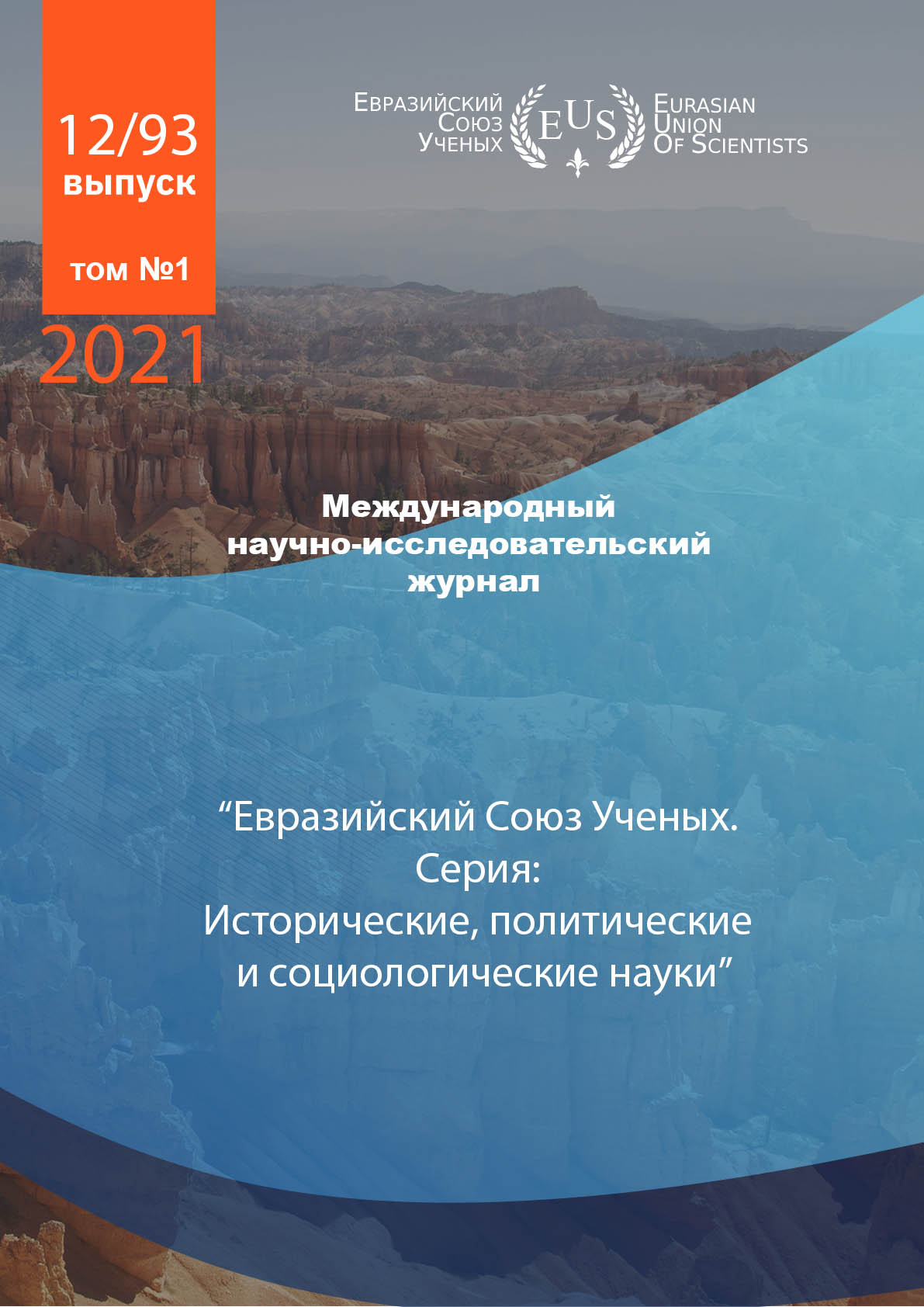DYNAMIC CHARACTERISTICS OF THE FAMILY GENDER CONTRACT IN POSTTRADITIONAL CONDITIONS
Abstract
The processes transforming the gender contract of family systems over the past decades are considered. The traditional gender contract has lost its universalism and rigorism. The economic foundation of the family is provided by both sides, i.e. it is divided within the married couple. However, the power of traditional gender role specialization leads to disproportionately excessive participation of women in unpaid domestic service work, which is an important part of the shadow gender contract. The paper analyzes the gender structuring of paid and unpaid maintenance work of family members, the different «temporal density» of leisure time for men and women, the loss of a man's leadership in the family in the conditions of traditional distribution of responsibilities; the conflicting balance of gender roles for women of creative professions.
References
2.Baranovskaja E.A., Dementij L.I. Social'no-demograficheskie i psihologicheskie faktory balansa delovoj i lichnoj zhizni v issledovanijah zarubezhnyh i otechestvennyh avtorov // Molodjozh' tret'ego tysjacheletija: sbornik nauchnyh statej. Omsk, 2020. S. 864–868.
3.Basina N.I. Institut sem'i v uslovijah krizisa: novye familisticheskie scenarii // Aktual'nye problemy obshhestva, jekonomiki i prava v kontekste global'nyh vyzovov: sbornik materialov V Mezhdunarodnoj nauchnoprakticheskoj konferencii. Sankt-Peterburg, 2021. S. 65–70.
4.Brostrem V. O. Neoplachivaemyj trud zhenshhin kak forma gendernogo neravenstva v social'no-trudovoj sfere // Vestnik Bashkirskogo instituta social'nyh tehnologij. 2020. № 4 (49). S. 78–82.
5.Vajsman Dzh. Vremeni v obrez: uskorenie zhizni pri cifrovom kapitalizme / per. s angl. N. Jedel'mana / Nauch. red. S. Shhukina. M.: Delo, 2019. – 304 c.
6.Godovannaja M., Temkina A. «Mat' – ty navechno, no i hudozhnica – vsegda»: tvorchestvo v uslovijah intensivno rasshirennogo Materinstva // Laboratorium. 2017. № 1. S. 30–61.
7.Isupova O.G. Gender, sem'ja i zdorov'e v Evrope // Demograficheskoe obozrenie. 2018. № 4. T.9. S. 186–193.
8.Kalabihina I. E., Shajkenova Zh. K. Zatraty vremeni na domashnjuju rabotu: determinanty gendernogo neravenstva // Monitoring obshhestvennogo mnenija: Jekonomicheskie i social'nye peremeny. 2019. № 3. S. 261–285.
9.Kruglova E.L. Sem'ja kak ob#ekt formirovanija novogo gendernogo porjadka // Vestnik RGGU. Serija «Filosofija. Sociologija. Iskusstvovedenie». 2021. № 1 (ch. 2). S. 238–245.
10.Padalko V.S. Sovremennaja model' sem'i: o tendencijah izmenenija supruzheskih rolej // Sovremennaja sem'ja: izmenjajushhiesja smysly i praktiki: sb. nauchnyh trudov (13-14 maja 2019 g.) / pod red. Ju.A. Zubok, T.N. Kamenevoj / Kursk: Kursk. gos. un-t, 2019. S. 151–158
11.Tartakovskaja I. N. Balans zhizni i truda prekarnyh rabotnikov: gendernye aspekty // Monitoring obshhestvennogo mnenija: Jekonomicheskie i social'nye peremeny. 2019. № 3. S. 163–178.
12.Tartakovskaja I. N. Zhenstvennost' prekarnosti // Interakcija. Interv'ju. Interpretacija. 2017. Tom. 9. № 14. S. 45–53.
13.Ushakov V.V. Jekonomika schast'ja: ocherednaja teorija ili smena nauchnoj paradigmy? // Vestnik Kerchenskogo gosudarstvennogo morskogo tehnologicheskogo universiteta. 2018. № 1. S. 105– 115.
14. Hochschild A.R. Emotional life on the market frontier // Annual rev. of sociology. – Palo Alto (CA), 2011. Vol. 37/ № 1. P. 21–33.
CC BY-ND
A work licensed in this way allows the following:
1. The freedom to use and perform the work: The licensee must be allowed to make any use, private or public, of the work.
2. The freedom to study the work and apply the information: The licensee must be allowed to examine the work and to use the knowledge gained from the work in any way. The license may not, for example, restrict "reverse engineering."
2. The freedom to redistribute copies: Copies may be sold, swapped or given away for free, in the same form as the original.





